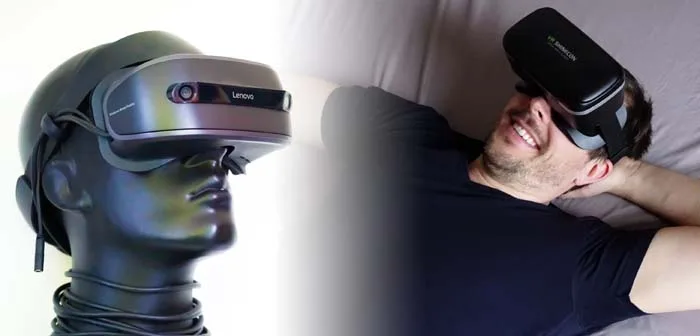With a steadily-growing worldwide interest in virtual reality, VR applications have grown tremendously in number and variety.
While gaming holds a significant share of the interest, the focus on more functional VR applications continues to expand.
Product design, cross-product integration, education, job training, and therapy are some non-gaming VR applications that have emerged in recent years.
Therapy, in particular, is an area with growing interest that has potential as an inherently drug-free treatment method.
Many people consider VR gaming a way of reducing stress and anxiety, myself included, and it’s not surprising.
My first VR experience was in Niagra Falls the 90s, but I’ve used a Rift S at home for over four years.
While not without problems, having a readily-accessible home VR setup and a wide selection of applications has been incredible.
During that recent period when so many things were shut down, VR provided many of us with an escape.
VR’s immersive nature allows users to alter their perceived realities and mental states of beings.
Still, stress reduction levels can depend on the application and the person.
Exploring the planet in Google Earth VR might be more relaxing than fighting undead creatures in After the Fall.
Though some people might consider plowing through waves of snowbreed to be stress-reducing, one never knows.
But it’s hard to go wrong with a Google Earth VR session, there’s so much to explore.
Virtual Treatment for Real Conditions
Physicians regularly prescribe medications to treat depression, stress, and anxiety, but these can come with side effects.
A new study says VR can provide a novel alternative.
The study, from spatial computing company XRHealth, says VR therapy can significantly reduce stress and anxiety.
Combined with exercise, VR’s efficacy may be amplified.
The National Institute of Mental Health (NIMH) says anxiety is one of the most common mental health conditions in the U.S.
According to NIMH data, Generalized Anxiety Disorder (GAD) affects 6.8 million adults, and 15 million have Social Anxiety disorder (SAD).
According to the study, an estimated 2.7 percent of adults had GAD in the past year.
XRHealth says home-based treatment options that work well are essential for treating anxiety and depression.
“Because of the prevalence of anxiety disorders diagnosed each year, and given the nature of the condition, it is important to have effective treatment options that can be done from the comfort of home,” says XRHealth CRO Eran Orr. “Mental health treatments that are engaging and effective are available for patients to do virtually.”
Orr says the study demonstrates VR treatment’s efficacy so patients might have multiple therapeutic options.
The Study
The study used XRHealth’s VR technology in therapeutic intervention applications.
According to the company, the method reduced stress in 73 percent of patients.
XRHealth says the stress reduction was more prevalent in females, primarily those aged 18-24.
Data also showed that GAD prevalence was higher (3.4 percent) for females than for males (1.9 percent).
The study involved 61 participants who received metaverse-based therapy.
The participants ranged in age from 15.7 to 45.7 years.
Regarding gender, 50 percent said they were male, 19 percent female, and 31 percent claimed other.
Therapy sessions focused on breathing, improving physical fitness, and promoting mindfulness in various relaxing settings.
According to the results, participant GAD decreased by 34 percent, and stress reduced by 32 percent after VR therapy sessions.
XRHealth presented 11 patients aged 18-34 with an augmented reality virtual island environment, complete with a waterfall and campfire.
Participants were also able to listen to music with an iPad if they chose.
Researchers determined results by measuring heart rate and compiling online survey responses.
The data showed a 73 percent stress reduction in patients ages 18-24, particularly females.
XRHealth Co-Founder Miki Levy says they use a clinician-centric technological solution for safe and effective anxiety treatment.
“Spatial computing is the perfect platform to bring this type of therapy to patients around the globe, allowing them to be in the same virtual room with their clinician from the comfort of their home,” says Levy. “The results of this retrospective review show that this method can provide an alternative to traditional brick and mortar institutions. Our job in XRHealth is to bring more tools into our platform to strengthen the clinician and provide them with superpowers to fight the surge in mental health conditions.”
With an abundance of prescription drug-reliant healthcare in the United States, VR is showing real promise as a safer alternative.
While the VR therapy field is relatively new, and some data may be anecdotal at this point, XRHealth’s study is not.
XRHealth’s study provides clinical evidence that VR has potential as a prescription drug-free treatment option for anxiety and depression.
Given the side effects that prescription drugs generally come with, virtual reality therapy could provide physically-safer relief for many people.

